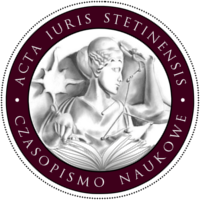






| Authors: |
Aleksandra
Strączyńska

Uniwersytet Kardynała Stefana Wyszyńskiego w Warszawie |
| Keywords: | India Hinduism human rights |
| Whole issue publication date: | 2024-06 |
| Page range: | 15 (107-121) |
| Downloads ?: | 177 |
| 1. | Ahmed–Ghosh H., Chattels of Society Domestic Violence in India, “Violence Against Women” January 2004, Vol. 10. no. 1. |
| 2. | Bankowicz B., Państwo świeckie, in: Marek Bankowicz (ed.), Słownik polityki, Warsaw, 1996. |
| 3. | Beteille A., The Idea of Natural Inequality and Other Essays, Delhi 1987. |
| 4. | Biblioteka Sejmowa, Konstytucja Republiki Indii, transl. J. Winczorek, Warsaw, 2020. |
| 5. | Bywalec G., Reformy ekonomiczne i polityczne a rozwój gospodarczy Indii (1991–2012), Łódź 2015. |
| 6. | Dumont L., Homo ierarchicus. System kastowy i jego implikacje, Kraków 2009. |
| 7. | Dumont L., Religion, Politics and History of India. Collected Papers on Indian Sociology, The Hague 1971. |
| 8. | Gaikwad S.L., Protective Discrimination Polity and Social Change. An Analytical Study of State Action on Scheduled Castes in Aurangabad City, Jaipur and New Delhi 1999. |
| 9. | Gupta A.R., Caste Hierarchy and Social Change. A Study of Myth and Reality, New Delhi 1984. |
| 10. | Hućko M., Selektywna aborcja a sytuacja państw azjatyckich – rozwój oraz konsekwencje zjawiska, “Wschodnioznawstwo” 2014, vol. 8. |
| 11. | Karp J., Notka redakcyjna, in: Biblioteka Sejmowa, Konstytucja Republiki Indii, transl. J. Winczorek, Warsaw 2020. |
| 12. | Kopyt E., Cywilizacja Zachodu a problemy postrzegania odmienności kulturowych, Toruń 2004. |
| 13. | Kudelska M., Hinduizm, Kraków 2006. |
| 14. | Maritain J., The Rights of Man and Natural Law, New York 1951. |
| 15. | Mirocha Ł., “Macierzyństwo zastępcze” w bieżącym orzecznictwie Europejskiego Trybunału Praw Człowieka w Strasburgu, “Prawo w Działaniu” 2018, No. 34. |
| 16. | Myrdal G., Przeciw nędzy na świecie, Warsaw 1975. |
| 17. | Nehru J., The Discovery of India, Delhi 1994. |
| 18. | Osiatyński W., Prawa człowieka i ich granice, Kraków 2011. |
| 19. | Paz O., Podpatrywanie Indii, Kraków 1997. |
| 20. | Pietrzak M., Państwo świeckie, in: E. Smoktunowicz (ed.), Wielka encyklopedia prawa, Białystok–Warsaw 2000. |
| 21. | Thayyil J., Jeeja M.C., Issues of Creating a New Madre of Doctors for Rural India, “International Journal of Medicine and Public Health” 2013, Vol. 3(1). |
| 22. | Tyloch W., Bogowie czterech stron świata, Łódź 1988. |
| 23. | Zajączkowski J., Indie w stosunkach międzynarodowych, Warsaw 2008. |